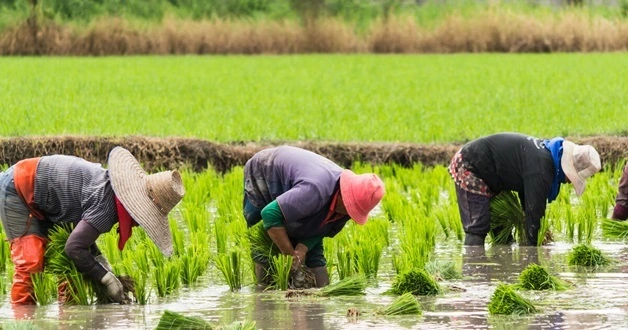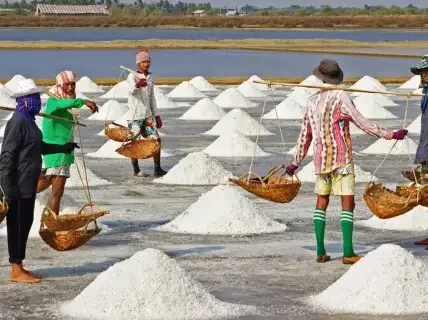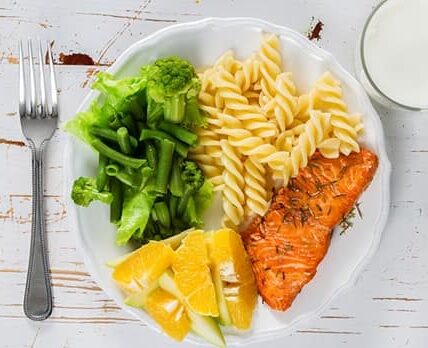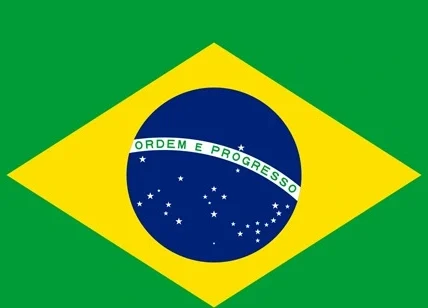Food products and items are something that isn’t going to be falling in demand anytime soon, right? And that is the very reason why any company diving into the food industry will have a huge opportunity to win the market, of course, only if they do as good a job, you know? But today, we are here to take a good look at the top 10 biggest food companies in the world as of 2024. These aren’t the companies limited to just one nation, these are actually the global players in this food industry game. Alright, let’s have a look now.
1. Nestlé
You may be a little surprised to learn how many food options in your pantry are from this brand or the sub-brands of Nestle. Go take a look, and you’ll know what we are talking about. Our ranking is topped by the Swiss behemoth Nestle, which was founded in 1867 and has an incredible market valuation of $270.57 billion as of 2024. Everyone may find something they love in Nestle’s extensive product line, which includes timeless favorites like Kit Kat and Maggi noodles. They have an unfaltering dedication to quality and innovation, and they operate in 189 countries with over 339,000 workers.
2. McDonald’s
And we don’t even need to explain why McDonald’s is one of the biggest fast food chains as well as the 2nd biggest food company overall in the entire world. After all, who among us hasn’t wished for a Big Mac? With a market valuation of $180.17 billion, fast food giant McDonald’s is king. It all started with a single drive-in in 1940, but now there are more than 40,000 outlets all around the globe. Compared to what? Always excellent, and always efficient, and that menu is impossible to resist! Despite concerns about their impact on the environment and public health, McDonald’s continues to innovate by implementing sustainable practices and using tech-savvy ordering methods.
3. Unilever
Can you tell us the connection between Dove soap and Ben & Jerry’s ice cream? The unnamed corporation. This British-Dutch behemoth has its hands (and fingers, of course) in a lot of different things, with a market worth of $137.14 billion. Established in 1929, Unilever produces a wide variety of goods, including food and personal care items. With the Unilever Sustainable Living Plan, they strive to improve the planet while ensuring that we are clean and fed, you know? We can at least say that their extensive product line is very remarkable.
4. Mondelez International
Has anyone ever munched on a Cadbury chocolate bar or an Oreo? Well, did you know that it is actually the Mondelez International behind that, always? Well, that’s a 100% true. This snack food industry giant was born out of the 2012 split at Kraft Foods and now has a market valuation of $88.98 billion. Mondelez doesn’t only satisfy your cravings for sweets, with each mouthful, they promote sustainability, thanks to their inventive tastes and powerful worldwide presence, you know? And for those who are a huge snacker, well, Mondelez’s portfolio is for sure a snacker’s dream, including brands like Ritz and Toblerone.
5. Chipotle Mexican Grill
Want some healthy, fresh ingredients in your burrito bowl? Well, having a $84.50 billion market cap, Chipotle has been around since 1993, and its “Food with Integrity” motto has revolutionized fast food. One of the most favorite things about Chipotle is how you can customize your meals with whatever you like, and that’s what has made every outlet of this food company super famous, not just western part of the world, but all across the globe. The commitment to quality and sustainability at Chipotle has won over customers at more than 3,400 restaurants.
6. Hindustan Unilever Limited (HUL)
Having a market capitalization of $70.26 billion, this Indian company has been a household brand since 1931. Serving over 700 million users, HUL is a Unilever company providing everything from soaps to snacks, you know? Your favorite brands like Dove, Lux, and Lipton are all under HUL’s big umbrella. Their incredible initiatives like Project Shakti help rural women, hence HUL stands out in the FMCG industry with its combination of sustainability and innovation.
7. Compass Group
Then comes the Compass Group at the seventh spot of this list, yes, the very company delivering 5.5 billion meals a year. Leading contract food service supplier worldwide with a market capitalization of $46.92 billion as of 2024, this British multinational From business dining to school cafeterias, Compass Group’s wide range of services transcends food to encompass waste management and cleaning. Their varied portfolio, which includes alliances with companies like Starbucks, guarantees they stay at the forefront of food service quality, ALWAYS.
8. DoorDash
With a market capitalization of $44 billion, DoorDash has evolved into a meal delivery giant in less than ten years. Originally started by 2013 Stanford students, it today holds a 56% market share in the United States. DoorDash links consumers to groceries, pet supplies, and more, therefore providing more than simply restaurant delivery, you know? All in all, their adaptable driving approach and emphasis on consumer convenience have transformed our meal ordering process.
9. Danone
From yogurt to bottled water, Danone, whose market capitalization is $40.97 billion, emphasizes nutrition and wellness. Originally launched in Spain in 1919, Danone has a worldwide presence spanning more than 120 international markets. Renowned for companies like Activia and Evian, their emphasis is on healthy and environmentally friendly goods. Though, their acquisition of WhiteWave Foods enhanced their profile in the plant-based market, therefore demonstrating Danone’s commitment to satisfying contemporary dietary tastes.
10. Kraft Heinz
A merger of two iconic brands, Kraft Heinz, with a market cap of $38.96 billion, brings together a rich history of food innovation. Renowned for Heinz Ketchup and Kraft Macaroni & Cheese, its goods are mainstays of the pantry shells everywhere. On top of that, their recent and pretty savvy acquisitions along with their huge worldwide presence help them to remain a powerful actor in the food sector despite current difficulties.
Conclusion
That’s pretty much it. Sure, there are countless companies in the global food industry, but these are by far the biggest ones when we consider the market cap as well as the impact of these companies. Alright then, we will meet you in the next one.

Brandon is the cheif editor and writer at WorldUnfolds.com. With a passion for storytelling and a keen editorial eye, he crafts engaging content that captivates and enlightens readers worldwide.















